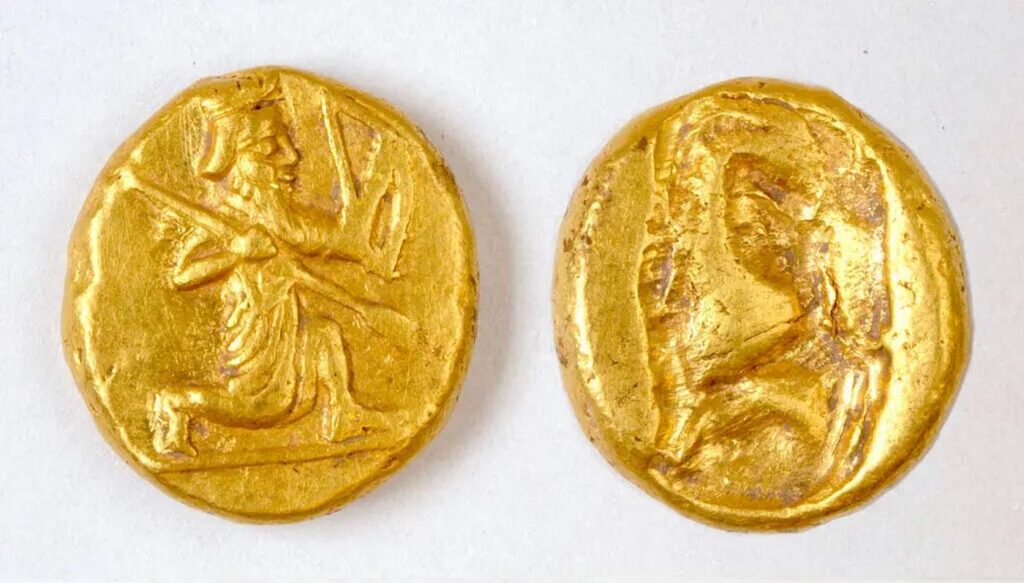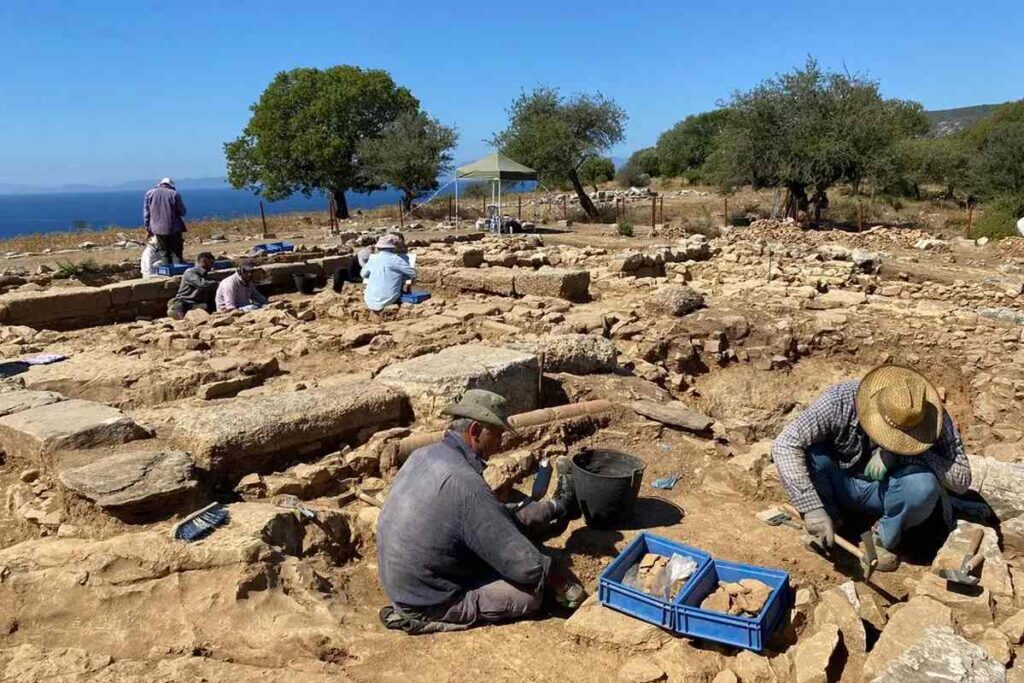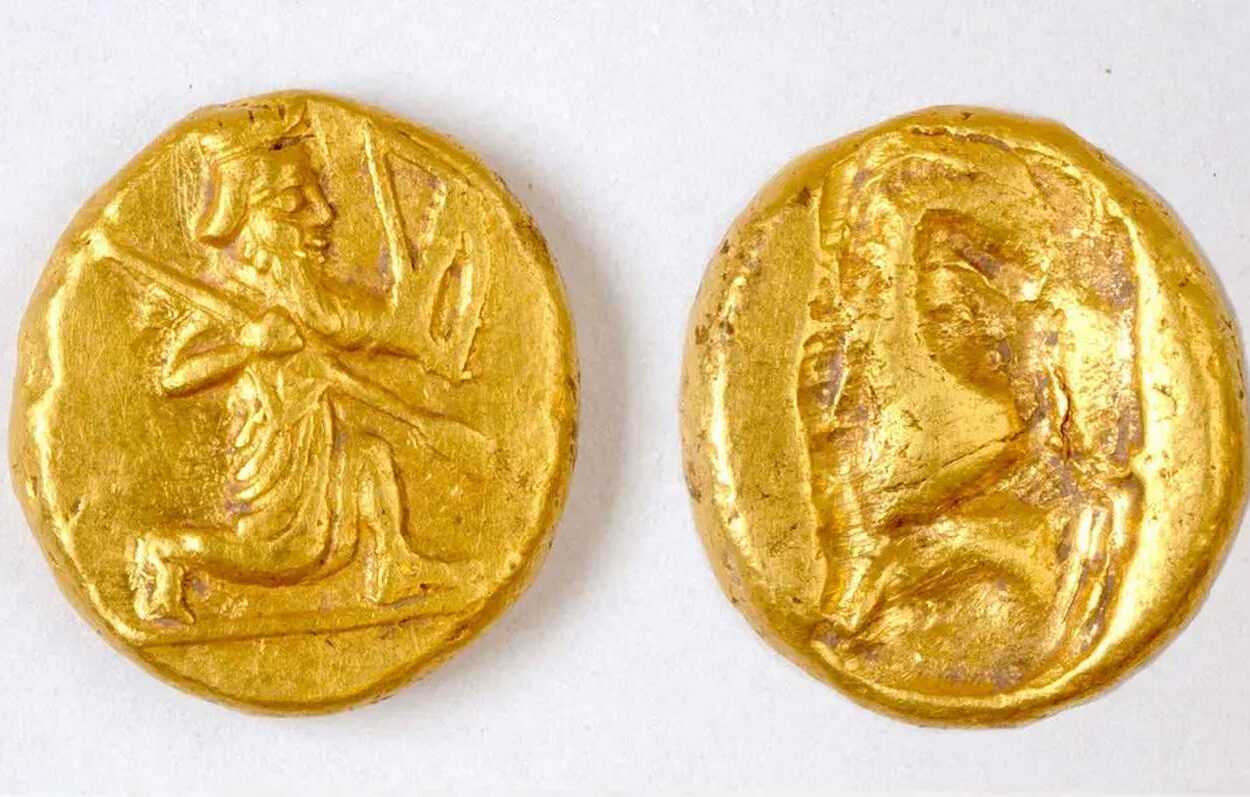Archaeologists Unearth Ancient Gold Coin Hoard in Turkey
An archaeological team led by Dr. Christopher Ratté of the University of Michigan recently unearthed a hoard of ancient gold coins, known as darics, at the site of Notion, an ancient city-state in modern-day Turkey. The discovery was made while excavating the foundations of a house dating back to the Achaemenid Persian Empire, which was found beneath another house from the Hellenistic Period, approximately 180 years later.

The darics, which date back to the 5th century BCE, are named after Emperor Darius I. The fact that they were never retrieved from their hiding place suggests they may have been buried by mercenary soldiers who did not survive the battle. These mercenaries often faced higher mortality rates as they were frequently positioned in dangerous spots on the battlefield.
Andrew Meadows, an archaeologist at the University of Oxford who was not involved in the project, hailed the discovery as of “the highest importance,” adding that it will help fine-tune the chronology of Achaemenid gold coinage.
Coins as Ancient Timekeepers
Coins and their designs serve as significant historical markers, helping to establish timelines for ancient empires and states. They also reveal important symbols associated with rulers of a state. For instance, the darics depict Darius I kneeling with a bow and a spear, providing insight into how the ruler wanted to be perceived.
These gold darics are particularly rare due to Alexander the Great’s orders to melt down and re-stamp all such coins with his image after he conquered the Achaemenid Empire.

Discoveries like this one continue to shed light on our past, revealing hidden treasures and stories buried beneath our feet. From 4,000-year-old lunchboxes to marble statues in ancient sewers to gold-filled tombs, archaeology continues to fascinate and educate us about the world’s history.
SHARE This Great Discovery And Important History With Your Friends…
Source: Good News Network





Leave a Comment